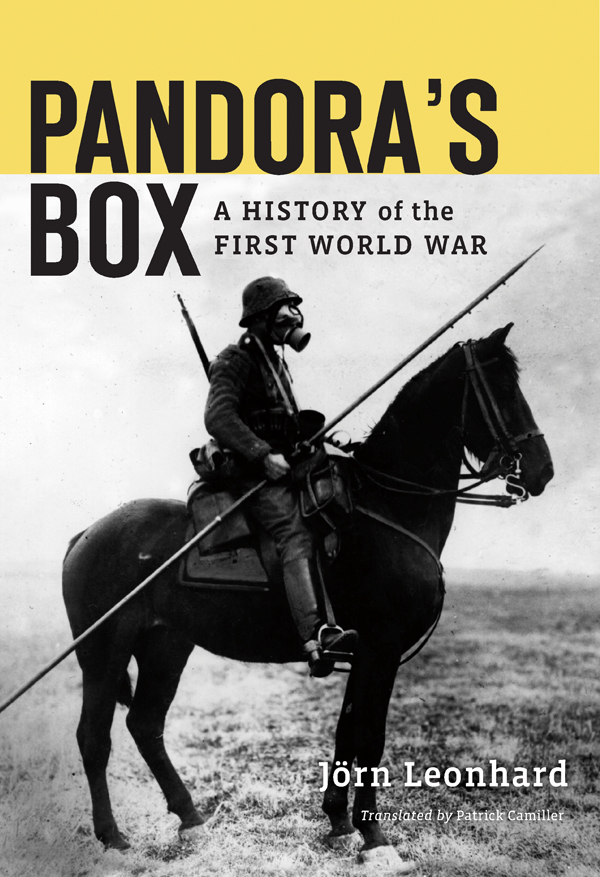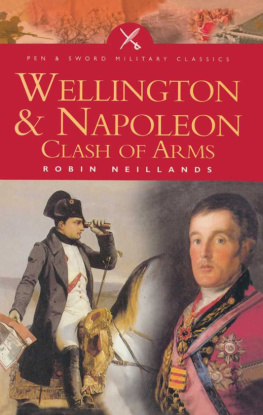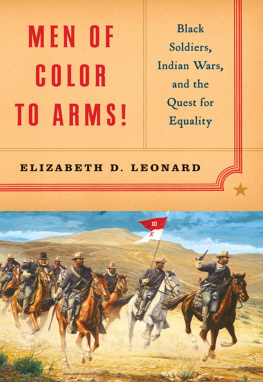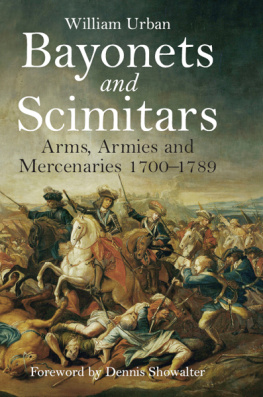Jörn Leonhard - Pandoras Box: A History of the First World War
Here you can read online Jörn Leonhard - Pandoras Box: A History of the First World War full text of the book (entire story) in english for free. Download pdf and epub, get meaning, cover and reviews about this ebook. year: 2018, publisher: Harvard University Press, genre: Politics. Description of the work, (preface) as well as reviews are available. Best literature library LitArk.com created for fans of good reading and offers a wide selection of genres:
Romance novel
Science fiction
Adventure
Detective
Science
History
Home and family
Prose
Art
Politics
Computer
Non-fiction
Religion
Business
Children
Humor
Choose a favorite category and find really read worthwhile books. Enjoy immersion in the world of imagination, feel the emotions of the characters or learn something new for yourself, make an fascinating discovery.

- Book:Pandoras Box: A History of the First World War
- Author:
- Publisher:Harvard University Press
- Genre:
- Year:2018
- Rating:5 / 5
- Favourites:Add to favourites
- Your mark:
- 100
- 1
- 2
- 3
- 4
- 5
Pandoras Box: A History of the First World War: summary, description and annotation
We offer to read an annotation, description, summary or preface (depends on what the author of the book "Pandoras Box: A History of the First World War" wrote himself). If you haven't found the necessary information about the book — write in the comments, we will try to find it.
Pandoras Box: A History of the First World War — read online for free the complete book (whole text) full work
Below is the text of the book, divided by pages. System saving the place of the last page read, allows you to conveniently read the book "Pandoras Box: A History of the First World War" online for free, without having to search again every time where you left off. Put a bookmark, and you can go to the page where you finished reading at any time.
Font size:
Interval:
Bookmark:

PANDORAS BOX
A History of the First World War
JRN LEONHARD
Translated by Patrick Camiller
THE BELKNAP PRESS OF HARVARD UNIVERSITY PRESS
Cambridge, Massachusetts | London, England | 2018
Copyright 2018 by the President and Fellows of Harvard College
All rights reserved
This book was first published as Die Bchse der Pandora: Geschichte des Ersten Weltkriegs Verlag C. H. Beck oHG, Mnchen 2014
Maps Peter Palm, Berlin / Germany
The translation of this work was funded by Geisteswissenschaften InternationalTranslation Funding for Humanities and Social Sciences from Germany, a joint initiative of the Fritz Thyssen Foundation, the German Federal Foreign Office, the collecting society VG WORT, and the Brsenverein des Deutschen Buchhandels (German Publishers and Booksellers Association).
Jacket photo: Topical Press Agency/Getty Images (August 2, 1917)
Jacket design: Jill Breitbarth
978-0-674-54511-3 (alk. paper)
978-0-674-98540-7 (epub)
978-0-674-98541-4 (mobi)
978-0-674-98542-1 (web-ready pdfs)
THE LIBRARY OF CONGRESS HAS CATALOGED THE PRINTED EDITION AS FOLLOWS:
Names: Leonhard, Jrn, author. | Camiller, Patrick, translator.
Title: Pandoras Box : a history of the First World War / Jrn Leonhard ; translated by Patrick Camiller.
Other titles: Bchse der Pandora. English
Description: Cambridge, Massachusetts : The Belknap Press of Harvard University Press, 2018. | This book was first published as Die Bchse der Pandora: Geschichte des Ersten Weltkriegs Verlag C. H. Beck oHG, Mnchen 2014. | Includes bibliographical references and index.
Identifiers: LCCN 2017040904
Subjects: LCSH: World War, 19141918History.
Classification: LCC D521 .L36513 2018 | DDC 940.3dc23
LC record available at https://lccn.loc.gov/2017040904
To the brothers
Ludwig Leonhard (18931917)
and
August Leonhard (18981976)
IT WAS REMEMBERED as a glorious summer. During the coming weekend, the children and some friends of theirs in the neighborhood were planning to perform a play based on the Greek myth of Pandoras box. Recounted in one of Gustav Schwabs well-known collections of tales from classical antiquity, it tells in parable form the story of Zeuss rage against Prometheus after he steals fire from the gods. The father of the gods orders Hephaistos, the god of blacksmithing, to produce a life-size figure of a maiden, who is then endowed by the other gods with many ways of inflicting calamity on human beings. Zeus himself leads this woman, Pandora (literally, the All-gifted), to Prometheuss brother Epimetheus. And though warned by his brother never to accept a gift from the gods, Epimetheus, to save humans from harm, invites Pandora into his home: In her hands she was carrying her gift, a finely crafted golden box with a lid. She carefully lifted the lid from the receptacleand at that very moment a swarm of evils rushed from it and spread in a flash over the whole earth. A single good lay hidden at the bottom of the box: hope. But before it could escape, Pandoraacting on divine inspirationquickly snapped the lid shut. And now all forms of misery filled land, sea and air; all manner of fevers laid siege to the earth, and death, which used to creep up slowly on mortals, quickened its step.
The children eagerly awaited the day of the performance. Wearing specially designed costumes, they were in the midst of the final full dress rehearsal in the garden of their vacation home on Saturday, August 1, 1914, when it was interrupted by their nanny: Just you take them off again; you cant play at theater today. War has broken out. The puzzled children found their parents on the terrace. Mother had her head buried in a newspaper, while Father, gazing into the distance and not without a touch of theatricality of his own, remarked, Before long a fiery sword will probably appear in the sky. That, anyway, is how the children remembered it.
This was the family of Thomas Mann, which had been spending the summer in their chalet at the idyllic Bavarian resort of Bad Tlz. On that August afternoon, the German Reich had declared war on Russia. It struck the children as odd that their father should be thinking just then of Leo Tolstoy, the writer and apostle of radical nonviolence, who had died in 1910. Its strange, he mused, but if the old man were still alivehe wouldnt need to do anything, just be there at Yasnaya Polyanathis would not be happening; it wouldnt dare to be happening.
Four years and three months later, in November 1918, Thomas Mann commented in his journal on the collapse of the order in which he had grown up and by which he had been so deeply marked: the order of the nineteenth-century bourgeois world, with its distinctive values and symbols. Through his novel Buddenbrooks, he himself had become its chronicler. But now it seemed to have foundered beneath a twin wave of revolution and military defeat. This was no mere change in the political form of the state. The novelists entry for November 9, 1918, in which he points to the hollowing out of that order by the long years of war, has a laconic feel. He is no longer surprised by the turn of events: All in all, I am rather calm and no longer feel horror. Revolutions happen only when they encounter no resistance (it was so with this one too), and this very lack proves that they are natural and justified. At heart the old rulers are happy to be rid of their powerwhich was no longer real powerand it has to be conceded that their authority is not adequate to the situation as it is and as it will be in the near future.
What was the First World War? With the hindsight that we have today, it appears as the formative prelude, elemental crisis, or early turnaround of the still young twentieth century.
The conflict reached completely new quantitative and qualitative levels of violence, killing ten million soldiers and nearly six million civilians; bringing about an unprecedented mobilization of societies and mass media, economies, and finances; and eliciting a plethora of explanations and justifications. It also marked a profound change in the relative weight of the worlds regions and especially in Europes place in the world.
What was the First World War? Anyone who wishes to understand it must grasp the experiences and expectations of the world it affected. William Gladstone, who, as Britains Liberal prime minister, left his stamp on the Victorian age, was born in 1809 and died in 1898. In his childhood he heard the sound of cannons firing from Edinburgh Castle to mark the abdication of Napoleon, and toward the end of his life he listened to his own recorded voice and became familiar with the newly invented telephone as the twentieth-century means of communication. The great tensions and dynamics of change in the nineteenth century, bridging the period before 1800 and the prehistory of the contemporary world, were concentrated in a single mans lifespan; the century was, so to speak, illustrated in his biography. How should this legacy of the long nineteenth century be characterized, and what did the First World War mean for it?
(1) Emancipation was a leitmotif running through the nineteenth century. In Europe as a whole, despite regional differences, demographic growth resulted in the mobilization of ever larger segments of the population, as the industrial mode of production imposed itself and transformed a feudal society of estates resting on legal privileges into a complex class society. Social and economic criteria increasingly came to define the locus of the individual within society. The legacy of the nineteenth century thus included the experience of economic growth and the ideal of not only political but also social equalityevident, for example, in the recurrent struggles for a republican form of state with socially defined rights, which erupted in France in 18481849 and among the forces of the democratic Left in Germany. By the end of the century, the specific momentum of economic and social differentiation became evident, contrasting with the political-ideological image of an elemental class conflict between capitalist bourgeoisie and proletarian working class that could only be solved by revolutionary means. Indeed, such simple rhetoric had masked the many nuances characterizing European societies in practice, which were discernible, for example, not only in the appearance of new groups such as skilled workers and white-collar employees but also in the question of whether the concept of revolution was still applicable at all in highly complex industrial societies. Disputes in the workers parties between supporters of proletarian revolution and evolutionary reform reflected this dynamic.
Font size:
Interval:
Bookmark:
Similar books «Pandoras Box: A History of the First World War»
Look at similar books to Pandoras Box: A History of the First World War. We have selected literature similar in name and meaning in the hope of providing readers with more options to find new, interesting, not yet read works.
Discussion, reviews of the book Pandoras Box: A History of the First World War and just readers' own opinions. Leave your comments, write what you think about the work, its meaning or the main characters. Specify what exactly you liked and what you didn't like, and why you think so.







